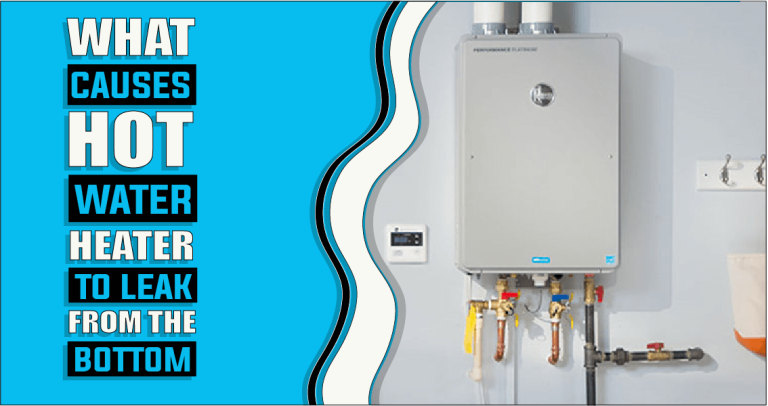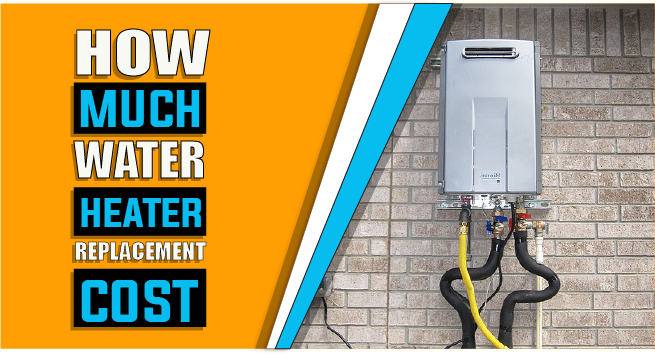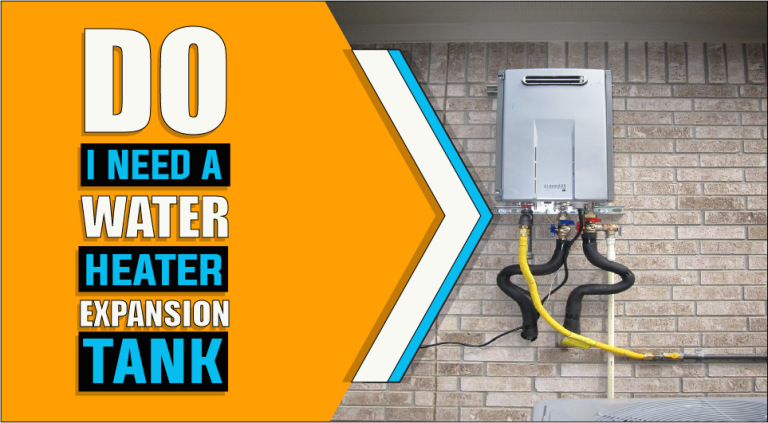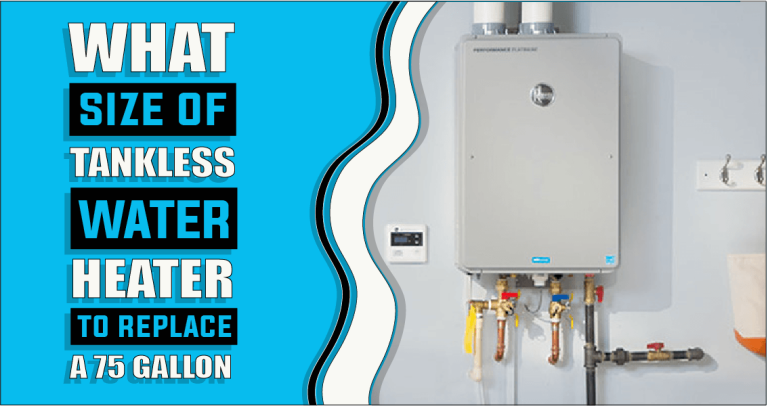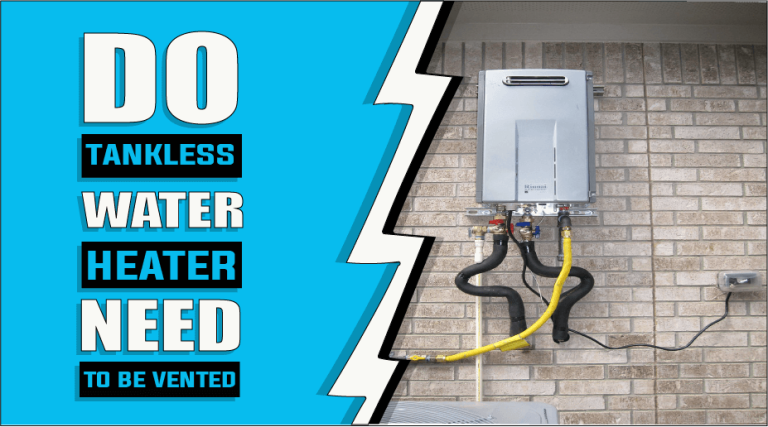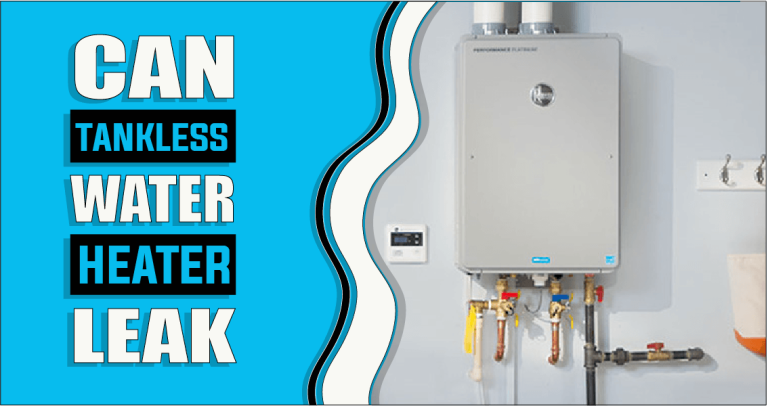Is Hot Water Heater Knocking Dangerous – The Truth Reveals
Are you hearing a loud, disconcerting knocking sound coming from your water heater, sending a chill down your spine? It can be concerning and it’s normal to wonder if there’s something seriously wrong. Don’t panic just yet! You’ll likely be relieved to learn that many of these noises are the result of the everyday operation in modern units, not necessarily a sign of imminent danger.
While it’s not the best to ignore anything out of the ordinary like rattling pipes or knocking sounds. It can indicate a problem with your water heaters like the build-up of sediments and minerals or malfunctioning of the pressure relief valve or heating element, that should be addressed immediately to prevent further damage.
In this blog post, we’ll explain “is hot water heater knocking dangerous”, what causes water heater knocking, how you know if it requires attention, and tips for minimizing or eliminating the sound. Keep reading to find out everything you need to know about water heater knocking, is it dangerous or not?
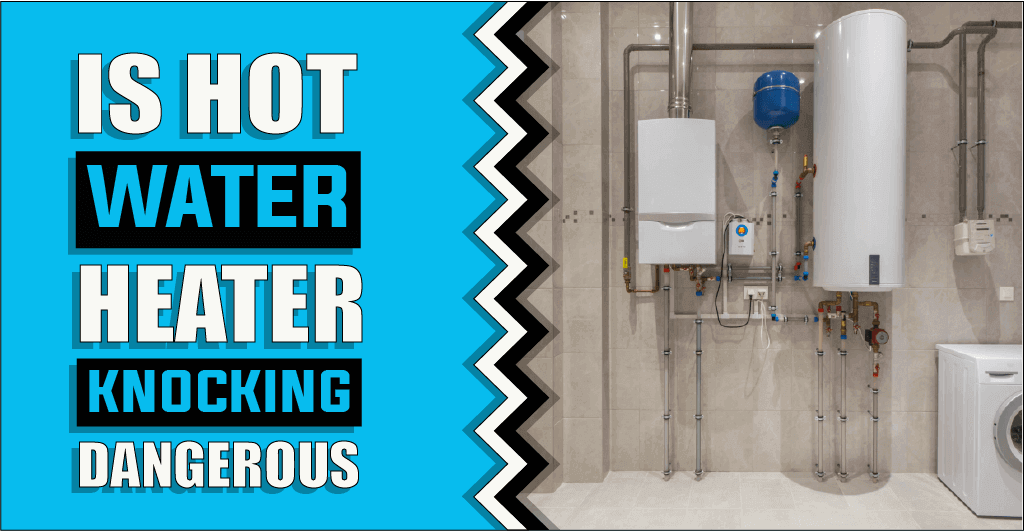
Let’s explore is hot water heater knocking dangerous.
No, a hot water heater knocking is generally not dangerous. In most cases, the knocking sound is caused by a buildup of sediment at the bottom of the tank. This can happen due to hard water deposits and other minerals dissolving in the water over time. The sediment eventually builds up and forms lumps which bang against the walls of the tank as they move around within the water heater’s tank during heating cycles. The noise typically occurs when heated water expands in the tank and pushes up against the sediment buildup. This causes little explosions of pressure commonly referred to as ‘knocking.’ In some cases, it can be loud enough to rattle through your entire home!
Although worrying, this occurrence isn’t necessarily dangerous and there are plenty of ways for a homeowner to troubleshoot and fix the problem without any outside help.
- Drain Out The Water From the Tank:
The best course of action is to start by draining some of the water from the tank; this helps reduce the pressure and should stop the knocking.
- Flush Out The Unit:
If that doesn’t work you may need to flush out all of the sediment to fully get rid of the issue.
- Adjust Temp or Place Insulation:
Other potential solutions include adjusting your hot water temperature setting or placing insulation around your tank to reduce residual heat loss or heat gain.
It’s important to note that water heater knocking should not be ignored; if left untreated it can often lead to further issues down the line such as leaks or other damage. That being said, with a basic understanding of what’s causing it and how best to solve it, most homeowners are well equipped enough to take on this minor task themselves, with no lasting harm done!
Reasons for the Knocking Noise in Hot Water Heaters
The most common cause of the water heater knocking noise is sediment buildup in the bottom of the tank. Other possible causes include malfunctioning pressure relief valves, heating elements that have come loose, or too much water pressure inside the tank itself.
1: Expansion of the Tank
When your water heater is heating up, the metal and other components of the tank expand from the heat. This expansion can cause a loud knocking sound to come from the interior of your water heater. As the metal expands and contracts, it creates an uncomfortable rattling noise that can often echo throughout your home. The banging noise can become more frequent as you use more hot water and then cease once the tank is allowed to cool down again after use.
2: Mineral Buildup Inside the Tank
One of the most common causes of a knocking noise within a water heater is mineral buildup inside its tank. This mineral buildup is caused by hard water being heated up inside the tank, which then forms calcium carbonate deposits that build up over time on its inner walls and start to create an uneven surface texture to which these deposits cling, causing a loud banging sound when pressure builds up inside of it.
To fix this issue, you can have your tank professionally flushed out periodically so that no minerals can accumulate within it over time.
3: Faulty Pressure-Relief Valve
Faulty pressure-relief valves are one of the main causes of loud banging noises coming from your water heater’s tank. If water accumulates too quickly above safe levels for normal operation which is about 150 psi, then this valve should automatically open up releasing some pressure before it builds up too much creating a dangerous situation for you and your family.
However if this valve malfunctions either due to rusting parts or simply not opening at all then instead of releasing pressure it would start sending large amounts into small containers like pipes which cannot handle such high levels leading to an increase in vibrations which result in loud noises as well as potential damages to your home’s internal structures if left unchecked for too long.
4: High Water Pressure
High water pressure is another issue that could cause loud knocking sounds coming from your water heater’s tank. Most municipal water systems provide between 40-60 psi, but anything beyond 80 psi becomes dangerous because most standard tanks aren’t built with components capable of handling these increased pressures which results in them vibrating wildly.
5: Loose Pipe Connections
The last common cause for loud knocking noises coming from within your water heater’s tank may be due to loose pipe connections! If these connections are not properly sealed down tightly during installation or if they become loose after years of continued usage, then they might start allowing air pockets inside against heated-up surfaces, causing audible rumbling sounds!
However, fixing this issue shouldn’t take too long for an experienced professional since all they have to do is tighten down these connections until everything runs smoothly again with minimal effort needed overall!
How do fix Hot Water Heater Knocking?
Water heater knocking is a common problem that can be easily fixed. The sound of banging or thumping in your water heater is caused by several different things. Most commonly, it’s caused by thermal expansion, sediment buildup, and incorrect temperature settings. If you’re hearing this noise coming from your water heater, there are some easy steps you can take to fix the problem.
1: Thermal Expansion:
This is the most common cause of water heater knocking. Thermal expansion happens when the water inside your tank is heated beyond its capacity and causes it to expand. The expanding water causes pressure to build up in the tank, which can cause banging or thumping sounds as it seeks a release valve. To fix it, you’ll need to install an expansion tank. This is a small tank that’s connected to your water heater, and it will help relieve any pressure as the water expands.
2: Sediment Buildup:
If you’re hearing banging or thumping noises coming from your water heater, sediment buildup may be the culprit. Over time, mineral deposits in the water can accumulate in the bottom of your water heater tank and cause loud noises. To fix this, you’ll need to flush out the tank and remove all sediment buildup.
3: Incorrect Temperature Settings:
If your water heater is set too high, it can cause banging or thumping sounds as well. To fix this, you should adjust the temperature setting of your water heater. It’s best to keep it below 120 degrees Fahrenheit, as temperatures above that can cause thermal expansion and other issues.
4: Flush a Hot Water Heater
Flushing your water heater once a year is a good way to prevent sediment buildup from causing knocking or thumping noises. To flush your tank, follow these instructions:
- Gather Your Supplies
Before you start flushing your water heater, make sure you have all the necessary supplies. You should have a garden hose, bucket, and pipe wrench. You will also need to make sure that there is a drain valve located at the bottom of your water heater so that you can flush the tank.
- Shut Off The Power Source
It’s time to shut off the power source for your water heater. If it is electric, this means turning off the electric brake and if it is gas-powered, turn off either the main gas supply valve or the pilot light switch.
- Turn Off The Cold-Water Inlet Valve
The next step is to turn off the cold-water inlet valve which can be found near the top of your water heater tank. This valve should be turned completely off and then opened slightly to let air in while draining occurs.
- Open The Drain Valve & Attach Hose
Once the cold-water inlet valve has been shut off, open up the drain valve located at the base of your tank and attach one end of your garden hose onto it securely with a pipe wrench or adjustable pliers if needed. Place the other end of this hose into a bucket and position both bucket and hose so as not to cause any spills when draining begins.
- Begin Draining The Tank
Finally, open up both valves (cold water and drain valves) simultaneously so that water can flow out gradually from the inside of your tank until no more comes out; this process can take anywhere from 10 minutes to half an hour depending on how much sediment has built up over time within its walls. Once all of this has drained out properly, close both valves again with a wrench or adjustable pliers before disconnecting them securely from each other.
- Flush With Fresh Water
Now that everything has been drained out from within your water heater’s walls and all debris removed effectively via gravity pressure, it’s time for a fresh rinse! Reopen both valves again simultaneously; doing this helps remove any remaining particles from within its walls by flushing them away with fresh water quickly.
Finally, repeat steps 5 & 6 two more times consecutively before calling it done! You’ve successfully managed to flush out debris build-up effectively whilst avoiding any potential damages caused by sudden force onto its delicate interior walls thus prolonging their useful life span efficiently!
Some More Ways to Stop Hot Water Heater Knocking
Once you know the reasons behind why your water heater is knocking, you can then look into ways to stop it from occurring. Here are some of the most effective solutions for tackling this issue:
1: Clean all Internal Parts
To reduce the risk of malfunctioning parts from developing, you should have a professional inspect and clean all internal components of your water heater periodically. This will help ensure that any potential signs of corrosion or debris buildup can be identified before they become serious issues in the future.
2: Check for Loose Connections and Make Sure All Fittings Are Tightened Properly
Finally, make sure to check for any loose connections within your hot water tank and make sure that all fittings are tightened properly. If there are any loose pipes or fittings present, then the vibrations from the knocking can cause them to loosen further over time; this in turn increases the risk of potential leakage occurring due to these loosened connections, leading to potential flooding and property damage.
3: Replace Damaged Parts if Necessary
Finally, if any components of your water heater are damaged or worn out due to the vibrations from the knocking, then they should be replaced with new ones as soon as possible; this will help ensure that your hot water system is functioning properly and safely in the future.
Potential Dangers of Hot Water Heater Knocking
The most common cause of a water heater knocking is sediment that has built up inside the tank. This sediment can come from minerals in the water, causing it to settle at the bottom of your water heater tank. When this sediment is heated, it produces bubbles which then burst as they make their way up through the tank, creating a loud sound similar to hammering or knocking. The vibrations caused by this knocking sound can lead to damage in several ways.
1: Leakage from Pipes and Fitting Connections
Vibrations resulting from the water heater’s knock can cause pipes and their associated fittings to loosen over time. This means that there is an increased risk of leaks occurring due to these loosened connections, leading to potential flooding and property damage. There are also risks associated with potential contamination from sewer gas seeping into your home.
2: Damage to Internal Components
In addition to it, the vibration caused by a water heater knocking could potentially cause damage to its internal components such as seals or sensors. While some components may be able to withstand minor knocks, others may not be so lucky; if these components become damaged or worn out due to vibrational forces over time, they will not be able to effectively control or regulate temperatures within your tank.
3: Malfunctioning Parts Due To Corrosion or Debris From Sediment Building Up
Sediment buildup within your water heater tank can also lead to corrosion on certain parts; this corrosion can lead to malfunctioning parts which could prevent your water heater from functioning properly or safely in the future.
In addition, debris buildup inside the tank can block various essential elements like burners or exchangers which are necessary for the proper operation of your hot water system, this can further contribute towards malfunctioning parts if left unchecked over time.
4: Risk of Explosion due To Gas And Electric Leaks
If there are any gas or electric leaks present in your home that goes undetected for too long due to failing parts, then there is an increased risk of an explosion occurring as a result. Explosions caused by leaking gas or electricity have been known to cause serious property damage and even fatalities in extreme cases, something which nobody wants for their home and family members!
Regular maintenance checks are key here; having your hot water system checked periodically by a qualified technician will ensure that all potential hazards have been identified before they become serious issues down the line.
Frequently Asked Questions
The knocking sound from your water heater can indicate that there is an issue with one or more of its parts, such as a loose fitting or debris buildup. You should have a professional inspect it to make sure the problem isn’t serious before attempting any DIY repairs.
The banging noise from your water heater can be annoying, but it isn’t usually harmful. However, if you notice the banging becoming more frequent or louder over time, then you should have a professional inspect your system to make sure there aren’t any underlying issues that might need to be fixed before they become serious problems.
The most effective way to handle a water heater that is making a knocking noise is to inspect it thoroughly and make sure all of its internal parts are tightly fitted and free from any debris buildup.
To fix a water heater that is making a knocking noise, you should flush out all of its internal parts with fresh water and inspect them for any signs of corrosion or damage.
Is there a loud pounding or rumbling sound coming from your water heater that can rouse the dead? If so, a substantial layer of sediment has probably accumulated in your water heater tank. Drain the water heater tank and flush the sediment out as a solution.
Conclusion
We hope you have found this article helpful in answering the question: is hot water heater knocking dangerous? No, water heater knocking is not usually dangerous. However, it can be an indication that there is an issue with one or more of its parts which can become serious if left unchecked. It is important to have a professional inspect your water heater periodically and take the necessary steps to flush out any debris build-up or check for loose connections to prevent potential damages from occurring in the future. By maintaining your hot water system regularly and addressing any issues as soon as possible, you can ensure that your water heater operates safely and efficiently. Thank you for reading! We hope this article has helped shed some light on what causes water heater knocking and how you can fix it effectively.
Ella John is passionate about helping her readers make the best choice when purchasing a heater. She understands that selecting a heater can be difficult and strives to provide information to help make the decision easier. Ella’s website, Heatersinfo.com, provides valuable insight into heating trends and types of heaters and tips on how to care for them. She also advises selecting the right heater based on individual needs and preferences. Her expertise in electronics makes her an excellent source of knowledge, and she is confident that anyone who visits her website will find the perfect heater information for their needs. Ella’s dedication to helping others make educated decisions about buying the right heater is unparalleled, and she hopes to continue offering her expertise for many years. With Ella’s help, finding the perfect heater can be a breeze!

